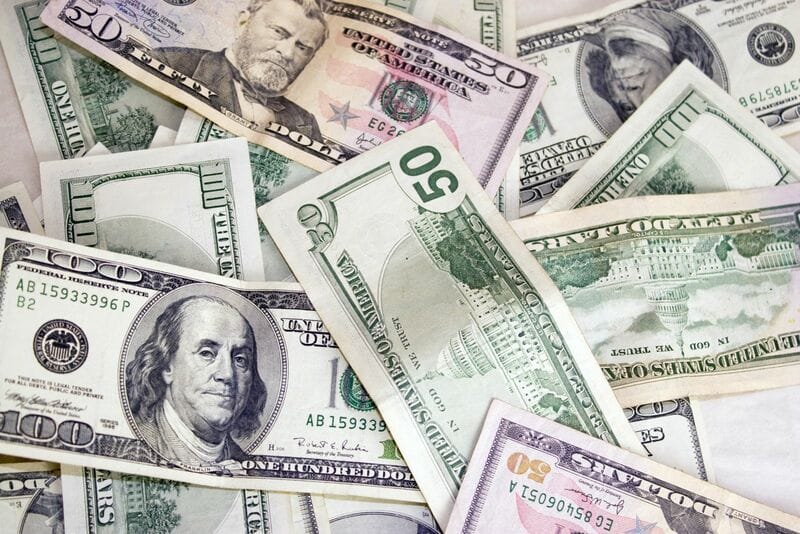
One over-the-top lucky Californian won America's Powerball lottery on July 19, with the winning ticket worth $1.08 billion. And we mean very lucky, as the odds of winning the jackpot are 1 in 292.2 million, according to the Powerball lottery.
While it's still unclear who actually won the prize, a single ticket was identified to have been sold in California after the drawing last week.
It's the third time the Powerball has surpassed the $1-billion-dollar mark, according to the Powerball website. The last time was in 2022, when the total surpassed $2 billion, making it a world record.
Yet while $1.08 billion is certainly a lot of money, Americans are likely wondering how much the winner really takes away. So let's look at how much this Californian will likely take home after taxes, if they could have claimed more in another state, and which is better; a lump sum or 29 payments?
How much was it really?
If you're the lucky winner of this Powerball, or any large lottery win, the first step to take would be to meet with a financial advisor. They'll be able to guide you through exactly how much you'll end up putting in your accounts.
However, in any case the federal government will be taking a large percentage of these $1.08 billion winnings. The Internal Revenue Service (IRS) will hold 24% of the your winnings right off the bat. However, this sudden large increase in your income will be taxed an additional 13% from the federal government. That brings the total to 37% in federal taxes.
The one extra-lucky part of living in California, however, is that there are no state taxes on lottery winnings. Therefore, this Californian would simply need to pay the federal government that 37%. However, what you end up paying in taxes really depends on if you choose the lump sum payment of $558.1 million, or the multi-year payment option.
Lump sum, or 29 payments?
A large portion of lottery winners tend to lean towards the lump sum payment. Over half-a-billion dollars certainly is tempting to take right away, but let's see whether one option is more lucrative than the other.
As the lump sum payment was $558.1-million, 37% of that amount would mean handing over about $206.5 million in federal taxes. That would leave this Californian with $351.7 million after taxes. Certainly an impressive amount.
There is the other option, however, of 30 payments, with the first coming in at a larger payment. In this case, winners would receive $36 million annually, with a 5% increase each year. This would still be taxed at a 37% rate by the government, totally $22.68 million per year.
In total, you would then receive about $895 million with the 5% interest taken into consideration, walking away with an extra $337 million approximately.
While this might seem like the clear answer, there are other points to consider. For instance, if you've won the lottery at age 70, you probably aren't going to wait for 29 years to receive all your cash. Furthermore, a financial advisor might suggest taking the money and investing it for higher returns, rather than waiting for payouts. There are many options to consider, and of course this Californian will need to choose the right one for them.
It matters where you live
If you're curious about how much you would win should you manage to hit the jackpot, the biggest influence will likely come down to state taxes.
There are a total of 10 states similar to California that do not tax lottery winnings. These other states are Florida, New Hampshire, South Dakota, Tennessee, Texas, Washington, Wyoming, and Delaware. These other states are also well known as states with low-tax burdens on residents. That does not include California, which is known as a tax-heavy state.
For the rest of the country, tax on lottery winnings varies. The District of Columbia is the highest at 10.95%, with North Dakota the lowest at 2.9%.
It's also important to note, however, that if you live in Alabama, Alaska, Hawaii, Nevada or Utah, you won't be able to participate in the Powerball. So if you're hoping for a major influx of cash, you'll need to keep hoping for a great inheritance.
Yet even if you weren't the jackpot winner, the Powerball is reminding Americans that there are other prizes to be won. The Powerball lottery is urging players to check tickets to see if they can claim one of the other nine ways to win. In fact, there were five tickets that won $1 million prizes in Connecticut, Florida, Kentucky, New York, and Pennsylvania. There were also a further three tickets that can claim $2 million in Arkansas, Georgia, and Texas, according to their website.
No matter how much money you end up bringing in, either personally or through lottery winnings, it's always a good idea to discuss your financial future with a certified professional.
On the date of publication, Amy Legate-Wolfe did not have (either directly or indirectly) positions in any of the securities mentioned in this article. All information and data in this article is solely for informational purposes. For more information please view the Barchart Disclosure Policy here.






